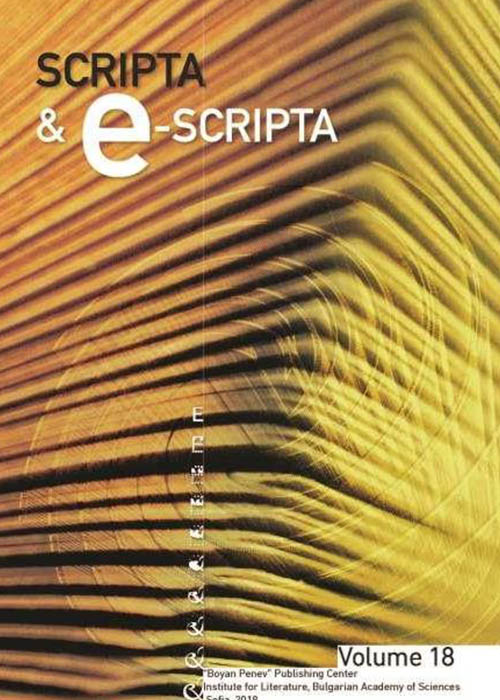Scribe vs. authorship clustering in historic manuscripts with LiViTo: A case study with visual & linguistic features
Групиране по преписвачи и авторство на ръкописи с историческо съдържание с помощта на LiViTo: казус с анализ на визуалните и лингвистичните особености

- Author(s): Aleksej Tikhonov Roland Meyer
- Subject(s): Digital humanities //
-
Published by: Institute for Literature BAS

- Print ISSN: 1312-238X
- Summary/Abstract:
In cases where there is a larger collection of manuscripts, the scribe or author of which is unknown or in doubt, analyzing such manuscripts can take a lot of time and effort. The more pages and potential writers are involved, the more complicated it is to get tangible results. LiViTo is a free tool2 that requires a minimum of experience with the command line and allows a simplified search for keywords, revisions, and clustering of historical manuscripts. We present the application of LiViTo on the “lab case” of the biographies of Czech Protestant refugees from the 18th–19th century. Most of these manuscripts include stories of farmers’ and craftsmen’s families who fled to Berlin because of their religious beliefs. The examination of this type of biographies and manuscripts using the methods of Digital Humanities takes place for the first time for Czech. Using extracts from the research project in which LiViTo was developed, individual functions of the tool are explained. In addition, individual findings relating to the manuscripts and the potential further development of the tool are presented.
Journal: Scripta & e-Scripta vol. 21, 2021
-
Page Range: 191-205
No. of Pages: 15
Language: English - LINK CEEOL:
-
Aleksej TikhonovHumboldt University of BerlinDescription
Aleksej Tikhonov is a researcher of the Department of Slavic and Hungarian Studies at the Humboldt University of Berlin. He completed his Ph.D. on the linguistic author identification of Rixdorf manuscripts in summer 2020 and defended his dissertation in spring 2021. His research interests are East and West Slavic languages, corpus linguistics, digital humanities, (semi-)automatic text recognition, Slavic languages in German popular music in the 21st century, linguistic integration of minorities, and multilingual language contact in urban areas. E-mail: tikhonal@hu-berlin.de Since spring 2021, Roland Meyer has been head of the German side of the UK-German Collaborative Research Project “The History of Pronominal Subjects in the Languages of Northern Europe” between the Humboldt University of Berlin and the University of Oxford (head: David Willis). Aleksej Tikhonov is working as PostDoc on the German side of the project.
Roland MeyerHumboldt University of BerlinDescriptionRoland Meyer is a full-time professor, Chair of West Slavic Linguistics, and the Managing Director of the Department of Slavic and Hungarian Studies at the Humboldt University of Berlin. His main research fields are East and West Slavic languages, corpus linguistics, language technology, diachronic syntax, pragmatics, register, intonation, argument and information structure, sentence mood, grammatical theories, German- Slavic language contact, area linguistics, and intercomprehension in Slavic languages.
-
SUBJECT: Digital humanities //
-